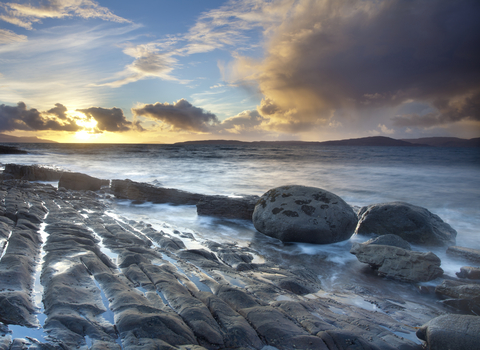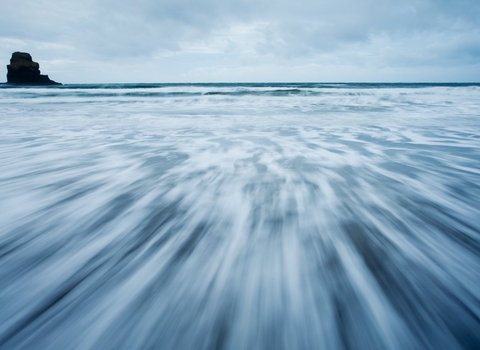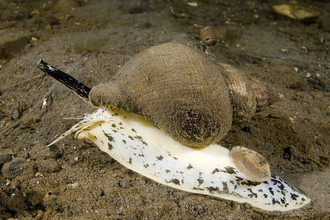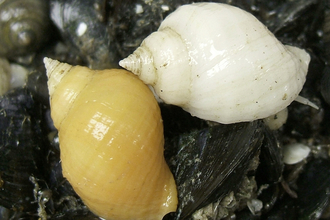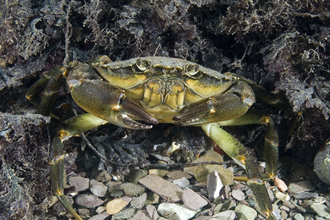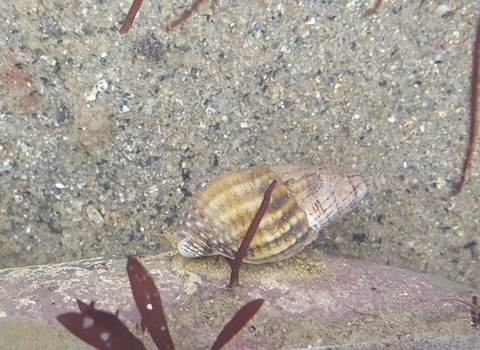
Dawn Thomas
Netted dog whelk
A small, but feisty scavenger, this carnivorous sea snail does not let anything go to waste!
Scientific name
Tritia reticulataWhen to see
January to DecemberSpecies information
Category
Statistics
Up to 3cm in heightConservation status
Common

